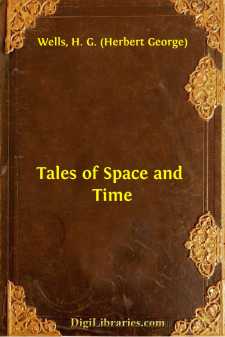Categories
- Antiques & Collectibles 13
- Architecture 36
- Art 48
- Bibles 22
- Biography & Autobiography 813
- Body, Mind & Spirit 142
- Business & Economics 28
- Children's Books 15
- Children's Fiction 12
- Computers 4
- Cooking 94
- Crafts & Hobbies 4
- Drama 346
- Education 46
- Family & Relationships 57
- Fiction 11828
- Games 19
- Gardening 17
- Health & Fitness 34
- History 1377
- House & Home 1
- Humor 147
- Juvenile Fiction 1873
- Juvenile Nonfiction 202
- Language Arts & Disciplines 88
- Law 16
- Literary Collections 686
- Literary Criticism 179
- Mathematics 13
- Medical 41
- Music 40
- Nature 179
- Non-Classifiable 1768
- Performing Arts 7
- Periodicals 1453
- Philosophy 64
- Photography 2
- Poetry 896
- Political Science 203
- Psychology 42
- Reference 154
- Religion 513
- Science 126
- Self-Help 84
- Social Science 81
- Sports & Recreation 34
- Study Aids 3
- Technology & Engineering 59
- Transportation 23
- Travel 463
- True Crime 29
The New Machiavelli
Description:
Excerpt
CHAPTER THE FIRST ~~ CONCERNING A BOOK THAT WAS NEVER WRITTEN
1Since I came to this place I have been very restless, wasting my energies in the futile beginning of ill-conceived books. One does not settle down very readily at two and forty to a new way of living, and I have found myself with the teeming interests of the life I have abandoned still buzzing like a swarm of homeless bees in my head. My mind has been full of confused protests and justifications. In any case I should have found difficulties enough in expressing the complex thing I have to tell, but it has added greatly to my trouble that I have a great analogue, that a certain Niccolo Machiavelli chanced to fall out of politics at very much the age I have reached, and wrote a book to engage the restlessness of his mind, very much as I have wanted to do. He wrote about the relation of the great constructive spirit in politics to individual character and weaknesses, and so far his achievement lies like a deep rut in the road of my intention. It has taken me far astray. It is a matter of many weeks nowвÐâdiversified indeed by some long drives into the mountains behind us and a memorable sail to Genoa across the blue and purple waters that drowned ShelleyвÐâsince I began a laboured and futile imitation of "The Prince." I sat up late last night with the jumbled accumulation; and at last made a little fire of olive twigs and burnt it all, sheet by sheetвÐâto begin again clear this morning.
But incidentally I have re-read most of Machiavelli, not excepting those scandalous letters of his to Vettori, and it seems to me, now that I have released myself altogether from his literary precedent, that he still has his use for me. In spite of his vast prestige I claim kindred with him and set his name upon my title-page, in partial intimation of the matter of my story. He takes me with sympathy not only by reason of the dream he pursued and the humanity of his politics, but by the mixture of his nature. His vices come in, essential to my issue. He is dead and gone, all his immediate correlations to party and faction have faded to insignificance, leaving only on the one hand his broad method and conceptions, and upon the other his intimate living personality, exposed down to its salacious corners as the soul of no contemporary can ever be exposed. Of those double strands it is I have to write, of the subtle protesting perplexing play of instinctive passion and desire against too abstract a dream of statesmanship. But things that seemed to lie very far apart in Machiavelli's time have come near to one another; it is no simple story of white passions struggling against the red that I have to tell.
The state-making dream is a very old dream indeed in the world's history. It plays too small a part in novels. Plato and Confucius are but the highest of a great host of minds that have had a kindred aspiration, have dreamt of a world of men better ordered, happier, finer, securer. They imagined cities grown more powerful and peoples made rich and multitudinous by their efforts, they thought in terms of harbours and shining navies, great roads engineered marvellously, jungles cleared and deserts conquered, the ending of muddle and diseases and dirt and misery; the ending of confusions that waste human possibilities; they thought of these things with passion and desire as other men think of the soft lines and tender beauty of women....












